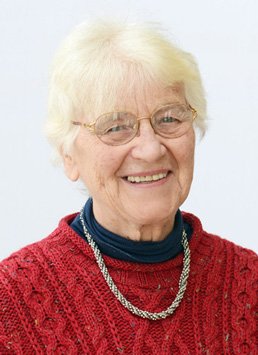Society for the Study of Women Philosophers, Inc.
a non-profit, tax-exempt educational charity 501(c)3 Internal Revenue Code
Macrina the Elder
fl. 340
|
Kate Lindemann's Women Philosophers pages |
 |
Remember!! Your purchase of books by clicking on Abe Books or Amazon links through this site earns us a small commission that is used to provide travel scholarships. |
Macrina the Elder and the Younger Macrina
"The premiss that women are men's spiritual equals is accepted and endorsed in all early Christian sources without exception" [Source: Ranft, Patricia. A Woman's Way p.26.] Thus is it not surprising to find women in early Christianity who hold postions of authority and who are teachers and directors of men as well as women.
The two Macrinas are prime examples of this leadership and scholarship. Some students confuse or conflate these two women. The elder was grandmother of the younger woman of the same name. The family is known in Christian history for its saintliness as well as its scholarship. There were six saints in this family: Marcrina the Elder, her daughter-in-law, Emmelia, and four of Emmelia and Basil's children, Macrina, Basil, Gregory and Peter. All six are Saints of the early Christian Church. The two Macrinas, Basil and Gregory are also well known scholars of the period.
Macrina The Elder c. 340 CE
The exact date of Macrina the Elder's birth is not known but since she studied under Gregory Thaumaturgos it must have been before 270.C.
She was known for her learning and good counsel. Since she and her family were Christians, both she and her husband suffered persecutions during the reigns of Galerius and Diocletian. They fled their estate at Neocasearea in Pontus and endured many privations during the persecution of Diocletian.
She is the mother of the elder Basil who was the father of Basil the Great, Gregory of Nyssa, Saint Peter of Sebaste and Saint Macrina the Younger.
Basil, whose works like those of his brother, Gregory are published in the complete works of the Father's of the Early Church says:
"I am speaking of the illustrious Macrina, by whom we were taught the words of the most blessed Gregory [Thaumaturgos], which, having preserved until her time by uninterrupted tradition, she also guarded, and she formed and molded me, still a child, in doctrines of piety." [Source: St. Basil. Letters]
. In the Christian church she is the patroness of widow and an intercessor against poverty. Her feast day in the Christian calendar is January 14.
Here is an icon of Macrina the Elder
This page was last updated 12/13/14.
Society for the Study of Women Philosophers